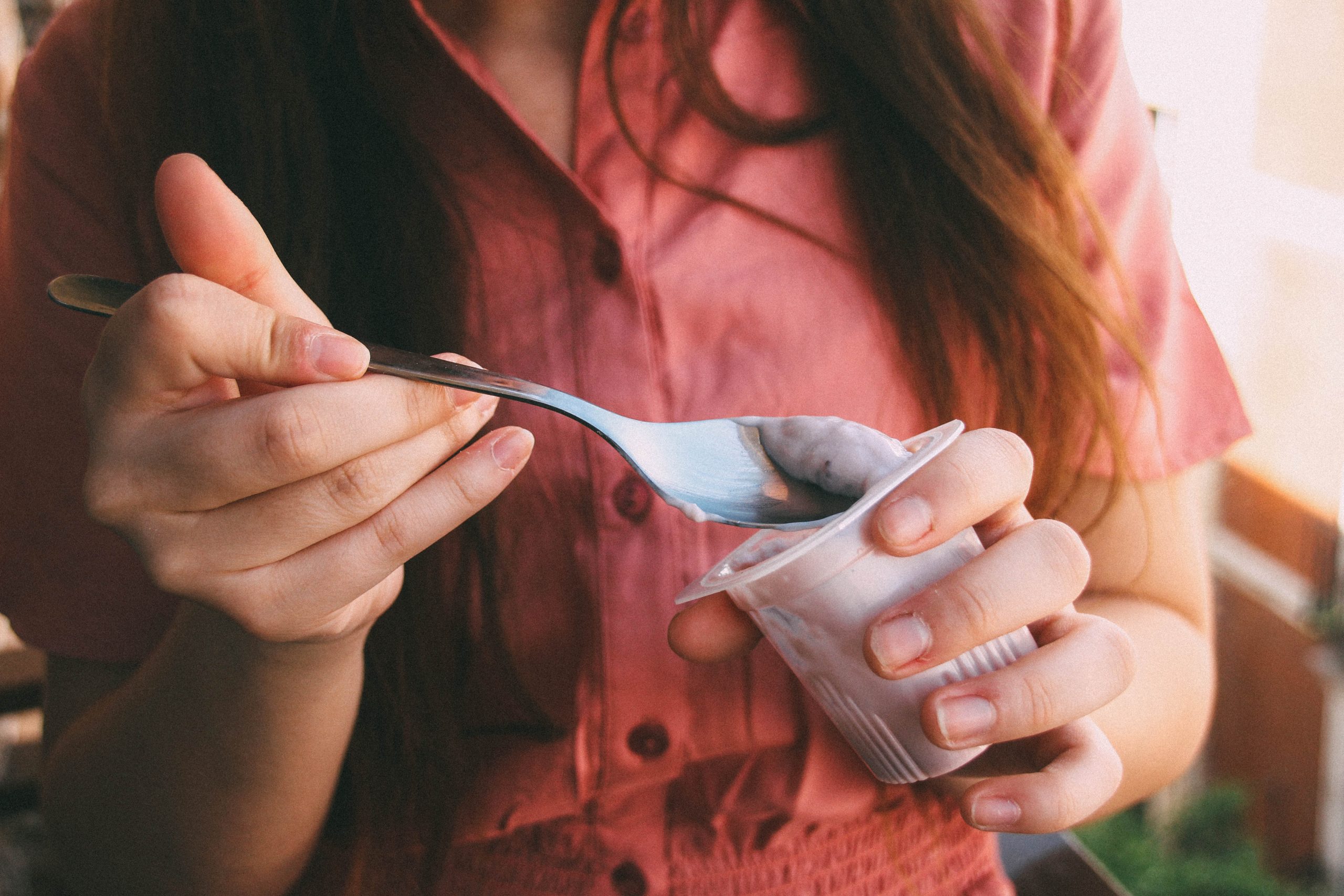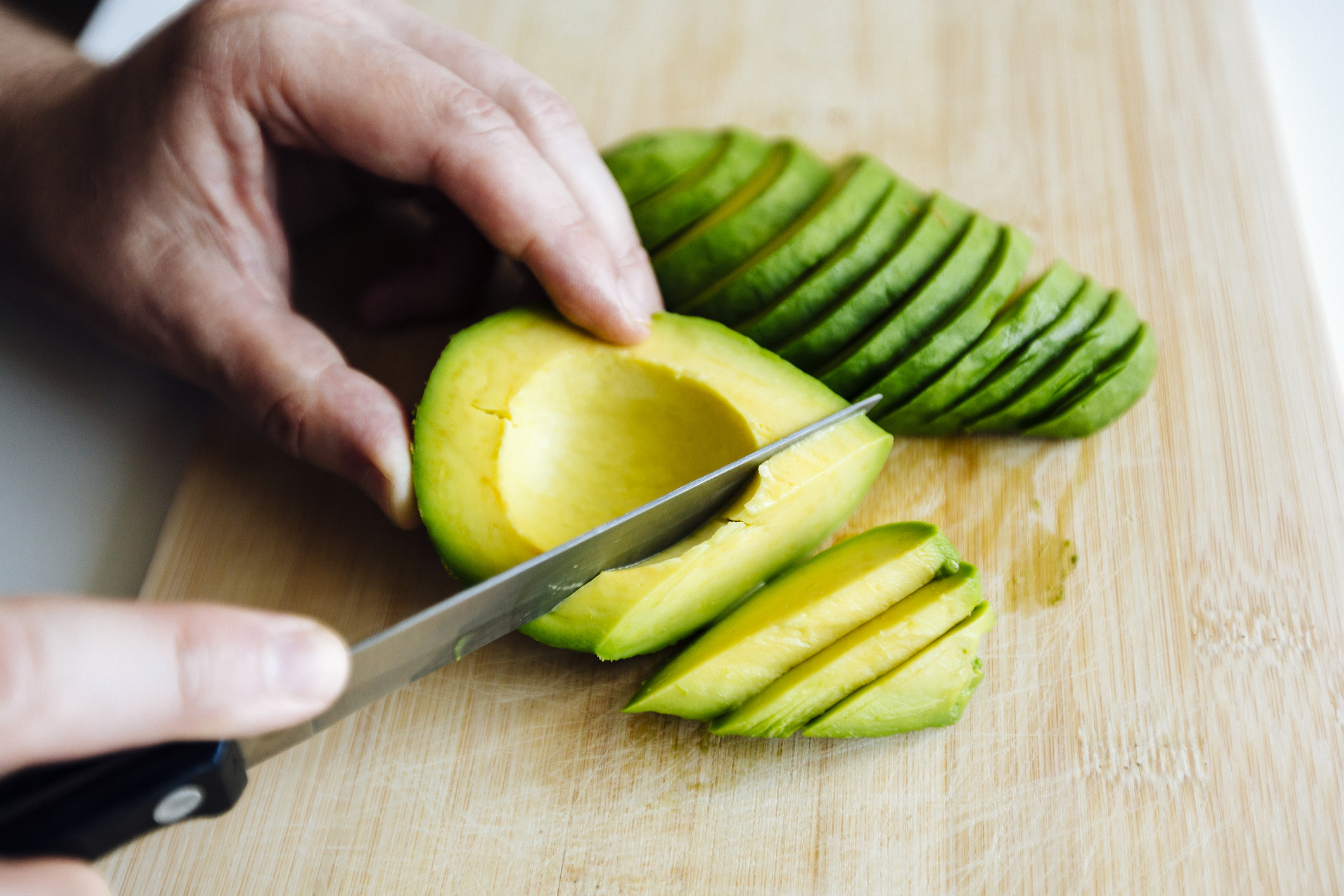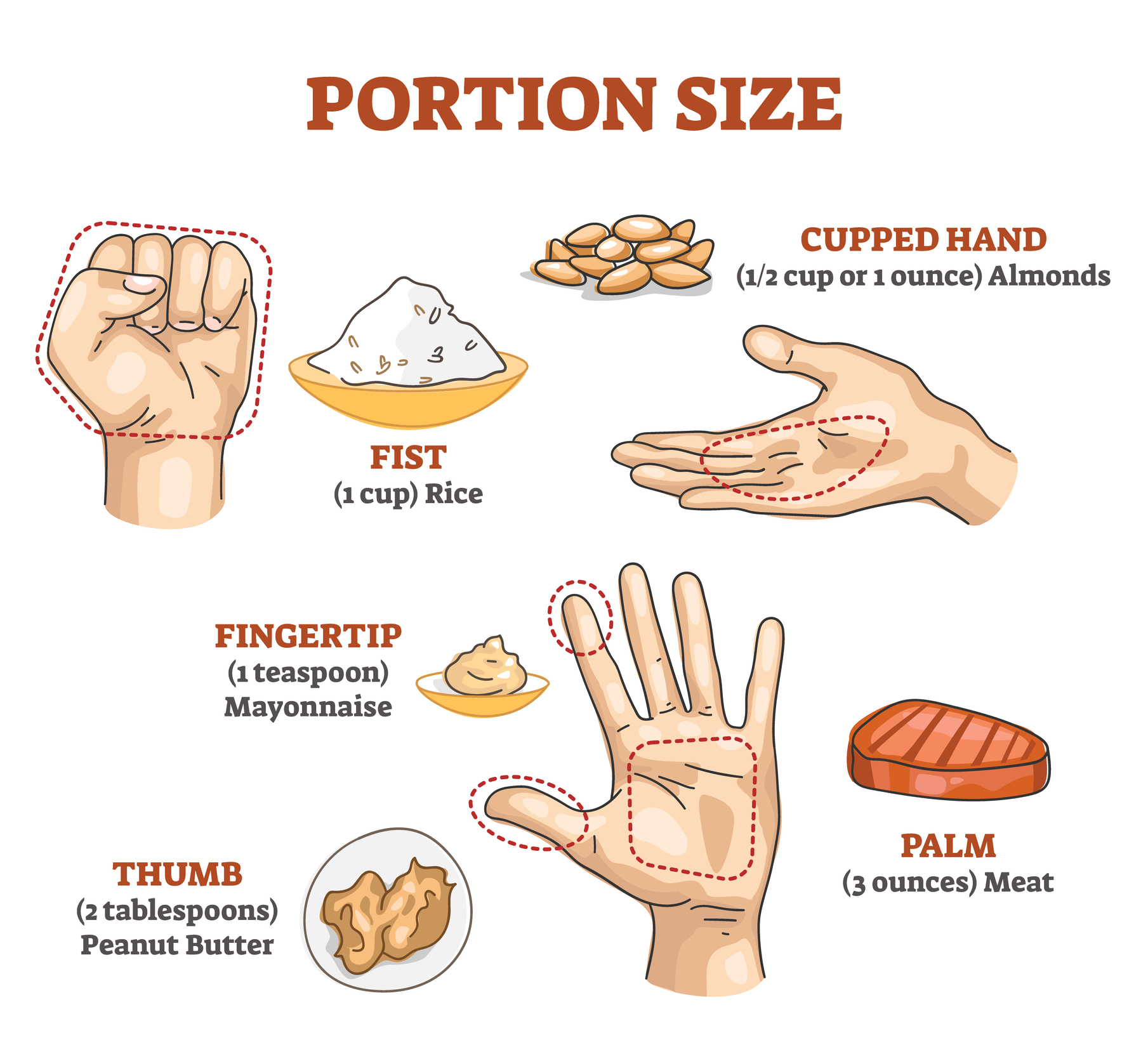How to lose belly fat: 22 effective and scientifically-proven tips to a slimmer stomach
Swat up on these natural methods to lose belly fat


Parenting advice, hot topics, best buys and family finance tips delivered straight to your inbox.
You are now subscribed
Your newsletter sign-up was successful
We've looked at the studies and consulted the experts to uncover how to lose belly fat.
A study analysing Google searches in the UK found that 'how to lose belly fat' is Googled over 4 million times annually. With the population seemingly obsessed with losing weight and burning fat from our stomachs, and adding fat-burning foods to our diet, it seems plenty of us are keen for answers.
"Losing belly fat is part of a whole-body process," explains sports nutritionist David Stache, suggesting where we might be going wrong. "If your goal is a flatter, more toned stomach, then you’ll definitely be losing fat from elsewhere too, which is why you should not implement specific strategies to only lose belly fat, as this will not work. Instead, focus on strategies that will keep you on track and instill consistency. Because achieving a flat stomach is not a quick process but one you'll have to stick out and supplement well to reach those goals."
How to lose belly fat:
1. Follow a Calorie Deficit
Watching how much you eat as well as how many calories you burn each day is often the first port of call we address. But instead of starving ourselves, the key is to follow something known as a 'calorie deficit'.
"This means you are consuming less food than what your body is burning throughout the day," explains personal trainer David Wiener.

Credit: Getty
The general understanding is that eating 500 calories less a day can lead to a one pound loss each week. As this is based on the method that one pound of fat contains 3,500 calories.
So taking this into account when adhering to the NHS recommended daily calorie intake, women would have to eat 1,500 calories (usually 2,000) and men 2,000 calories (usually 2,500) to create a calorie deficit.
Parenting advice, hot topics, best buys and family finance tips delivered straight to your inbox.
Whilst this is a rough estimate, individuals seeking a more accurate calorie deficit should consult with their doctor. "Simply ensuring you eat ‘clean’ is the simplest way to shed a few pounds," adds David Weiner. He encourages a focus on fruit and veg, lean protein and unrefined carbohydrates to help healthily sustain this deficit.
2. Drink more water
Hydration is essential for your health overall. And drinking plenty of water is especially effective when it comes to weight loss explains sports nutritionist David Stache. "You should aim to drink around six to eight glasses of water each day to see results," he tells us. "Water helps suppress your appetite and improves exercise performance meaning you burn more."
Scientific research also supports that water is good when wanting to lose belly fat. One study showed that those who drank water before a meal lost 44% more weight than those who didn't. And that this may have increased weight loss by 2kg over 12 weeks.
3. Ditch the alcohol
Whilst water is your friend whilst wanting to lose belly fat, alcohol is the enemy. "Too much alcohol has been linked to obesity and can lead to excess fat storage around the waist, David Stache warns. "Cutting back on alcohol may not only help you reduce your waist size, but it will also make you feel fresher and more energised."
Dr Dan Bunstone, chief Medical Officer at Push Doctor agrees that alcohol's high calorie content is what leads to the notorious 'beer belly'. "Your body will always prioritise getting rid of empty calories first," he explains. "This means that lots of other important processes have to wait, including burning off fat. So, while your body is busy getting rid of the calories from all the alcohol you’ve drunk, any excess fat has nowhere to go but your waistline."

Indeed, one study has shown that heavy alcohol consumption was a huge contributor to abdominal obesity.
However, it's not completely bad news. As science suggests that small and regular alcohol consumption is far superior than infrequent binge-drinking sessions. Research in a study of 2,000 people showed that those who had less than one alcoholic drink a day had less belly fat overall than those who drank more irregularly, but consuming more.
4. Walk more
As David Wiener simply states: "Walking is a form of cardio and cardio burns calories."
Those wanting to shift some belly fat should try and stretch their legs as often as possible. Especially as science has highlighted walking as a proven way to lose weight. Research showed that overweight women who walked for 50-70 minutes, 3 days a week, successfully lost more belly fat than those who were sedentary.
Your walking rate also determines how much weight you can lose too. With another study by the British Journal of Sports Medicine showing that those who walked at a pace of 4.6 mph, burned over 50% more calories than those who walked at 3.6 mph and 4.1 mph.
A simple way to up your steps can be as simple as swapping the lift for the stairs on your morning commute. "Most people would assume that walking up a few flights of stairs wouldn’t make a difference or it’s a waste of time, but that’s not the case," David Weiner adds. "Keeping your body moving, no matter how, will have a massive impact on your weight loss journey and general health."
5. Try a HIIT workout
David Weiner also hails a HIIT workout as doing wonders for burning belly fat. "Interval training is a great way to increase your fitness levels and calorie burn," he tells us. "It’s performed by alternating intense periods of physical activity with short periods of rest so that your body can recover briefly before you up the intensity again."
This approach is not only good for endurance, but also helps boost our metabolisms. And it's scientifically backed too. One 2018 study found that HIIT workouts were proven to decrease fat-mass deposits, including "those of abdominal and visceral fat mass."
David adds that your HIIT session needn't be longer than 15 minutes either. And it can be as simple as repeating sets of squats, lunges and burpees for a few rounds.
6. Get some quality sleep
A lack of decent sleep, particular deep sleep, has been scientifically shown to lead to weight gain.
Researchers in one study found that "chronic partial sleep loss may increase the risk of obesity and diabetes". And the reason behind this is that our lack of energy and tiredness affects our appetite and glucose levels. Which in turn makes us reach for sugary treats for a quick energy hit.
"You should try to get at least 7 hours of sleep a night," advises nutritionist Rob Thorp. "But with this, try to make sure the quality of sleep is sufficient. Sleep deprivation increases demotivation, meaning you will be less engaged in sticking to a healthy diet, or participating in exercise," he adds.
7. De-stress
It's something we all experience from time to time. But sadly stress and particularly stress-eating has a huge impact on our waistlines. "Without realising, stress can make you gain belly fat by triggering cortisol hormones," explains Rob. "When your cortisol levels are running high your appetite will increase, meaning you will not only put on more weight, but it will also be harder to lose weight."
Indeed, research has shown that higher cortisol levels are behind an increase in appetite AND promoting belly fat. Frustratingly another study shows that women who already have a larger middle will also produce more cortisol in stressful situations. And this increased cortisol equals more fat again around the abdominal area.
To help deal with stress and the pounds it can cause, Rob encourages regular exercise and relaxation activities to counteract stress and promote calmness.

Credit: Getty
8. Eat lots of protein
"In order to lose belly fat, you should be eating a palm-size of lean protein with every meal," says sports nutritionist David Stache.
Start the day with a high-protein breakfast, like an omelette. And be sure to include other protein-rich foods like chicken, salmon and lentils in your other two courses. "Not only is it incredibly filling, but protein also stimulates the hormone PYY, which reduces appetite and helps you to feel more satisfied, which will stop you from overeating," adds David.
Researchers at University College London also credited protein with helping to retain muscle mass during weight loss.
9. Spicy foods
Who knew that spice can burn fat and boost our metabolism? Nutritionist Mina Khan, founder of nutraceutical company Formulate Health advocates for chilli and ginger as two spices that could make a difference within your balanced diet.
The science behind this is that both contain compounds (capsaicin in chilli and gingerols in ginger) which have a "thermogenic effect" in the body.
"When we digest compounds such as these, a signal is sent to the brain which activates our sympathetic neurons," she says. "Some studies have found that the activation of these sympathetic neurons can help to increase metabolic rate (the rate at which we burn calories)."
Mina adds that turmeric and black pepper also support good regulation of blood sugar and cholesterol levels which can "help promote a healthy, natural reduction in belly fat overtime" too.
What's more, a study in the American Journal of Clinical Nutrition showed that daily consumption of capsaicin (also found in pepper) speeds up belly fat loss by boosting the body's ability to convert food into energy. Whilst Canadian researchers have shared that men who ate spicy appetisers consumed 200 less calories than those who chose a non-spicy option.
10. Increase your fibre
A high fibre diet is the key to a trim mid-drift according to research. One Annals of Internal Medicine study showed that women who solely increased their fibre intake experienced successful weight loss. Whilst upping the fibre intake by 10g in another study also showed a loss in belly fat by 3.7% over 5 years.
Not only does fibre promote good gut health, but it also helps us feel fuller for longer, preventing us from over-eating and gaining the pounds.
Fibre-rich foods to try:
- Berries
- Pears
- Oranges
- Avocado
- Broccoli
- Carrots
- Potato with skin
- Peas
- Beans and pulses
- Wholegrain foods - wholegrain bread and breakfast cereals
- Wholewheat pasta
- Nuts and seeds.
11. Up your probiotics
Boosting your body's beneficial bacteria with probiotics is scientifically proven to reduce belly fat. "Probiotics are good bacteria which help to restore the balance in your gut, helping to ease and eliminate inflammation that could be the cause of bloating or result in difficulties losing weight and shedding fat," nutritionist Rob tells us.
You can find probiotics in healthy yogurts, including some good-for-you greek yoghurt.
“Recent studies have found direct links between the consumption of greek yogurt and a reduction in belly fat," says Mina. "This is extremely promising for individuals who are looking to lose weight in a healthy way."

Credit: Getty
12. Eat more fish
Various studies have found that regular consumption of Omega 3 fatty acids (commonly found in fish) can help to reduce body fat when compared with a placebo.
"Fish, particularly oily fish contains the Omega 3 fatty acids such as eicosapentaenoic acid (EPA) and docosahexaenoic acid (DHA)," says Mina. "It's not yet fully understood how exactly this works, but many researchers think that fat loss in these cases may be caused by EPA and DHA's ability to suppress lipogenic gene expression in the body. This limits the synthesis of lipids (fats and oils), thereby reducing the risk of obesity."
Those who aren't huge fish fans can equally reap the benefits by taking fish oil supplements. One 2010 study found that these supplements prescribed to adults and children with fatty liver disease reported a reduction in both liver and abdominal fat.
13. Lift some weights
Dig out the dumbbells and get lifting. As resistance training has been hailed as one effective way to lose belly fat. One study with overweight teenagers found they lost more visceral fat when they combined strength training and aerobic exercise, rather than just cardio.
Then there's research by the University of Alabama thats suggests women who worked out with weights lost more belly fat than those who only did cardio.
14. Ditch sugary drinks (and sugar in general)
You don't have to be a scientist to know that eating large quantities of sugar can lead to an influx of pounds. Indeed, several studies certainly make the case for quitting sugar, with an increase in abdominal fat linked to a diet high in the sweet stuff.
Researchers at Virginia Tech went one step further and investigated the effects of sugary drink consumption, with some alarming results. They found that those who swapped their daily sugar-sweetened beverage for water saw a reduction in calories by 6%. And that this could increase to a whopping 25% daily calorie saving if those who drank more sugary drinks switched to water.
Looking out for hidden sugar in both everyday food and drink is one pro-active way to combat belly weight gain. Whilst healthy sugar swaps like honey can save on calories too.
Cut down on or avoid these sugary drinks where possible:
- Lemonade (14g sugar in a 330ml can)
- Fizzy orange (15g sugar in a 330ml can)
- Ginger beer (16g sugar in a 330ml can)
- Lipton's iced tea (22g in a 500ml bottle)
- Lucozade Original (22.3g sugar in a 500ml bottle)
- Regular Coca Cola (35g or seven teaspoons of sugar in a 330ml can)
15. Focus on healthy fats (and avoid trans fats)
Science has deemed that all fats aren't made equal. With many of us aware that the fat in an avocado is healthier than that of fat found in fast-food.
One study went further and discovered that those who ate avocados tended to have less belly fat than those who don't. And part of this was due to their monounsaturated fat called oleic acid which is also found in olive oil.

Credit: Getty
Whilst some mono fats prove beneficial, it's the terrible trans fats you want to steer clear of. As a 6-year study with monkeys confirmed that those who ate a high trans fat diet gained 33% more belly fat than those following a monounsaturated fat diet.
With this in mind, don't overindulge in butter and margarine spreads, french fries, doughnuts, fried chicken or microwave popcorn. As these are foods known to carry a high trans fat content.
16. Prepare your own meals
Whilst we can make an effort to select the healthiest ready meals at Asda, Tesco, Sainsbury's and so on, there's nothing that beats a home-cooked meal. Many pre-made dinners have a huge amount of hidden salt, sugar and fat. Plus they're packed with unknown additives, flavourings and colourings that we're often unaware of.
Cooking from fresh means we know exactly what's in our food. Plus science has shown it can aid a loss in belly fat too. Researchers of one UK-based study found that participants who ate over five home-cooked meals a week were slimmer than those who had just three fresh meals a week. The results showed that they had a 24% reduced risk of carrying body fat compared to their counterparts. And were also 28 per cent less likely to have a higher BMI too.
17. Reduce portion size
Quantity is just as important as quality when it comes to eating. And you can definitely lose body fat by adopting the 'less is more' mentality. One study found that those who stuck to recommended portion sizes benefited from enhanced early weight loss. Whilst participants in another study showed better weight management when following diets that advocated strict portion control.
Make sure you're meeting your five-a-day portion sizes and try to stick to recommended adults portions with refined carbs like white pasta and rice too.

18. Load up on whole grains
"Whole grains are a fantastic option for those looking to lose belly fat," says Mina, praising their nutritional properties:
"Oats, brown rice and barley often have a low glycaemic index (GI) which means the carbohydrates in these foods are released more slowly, therefore helping you to keep fuller for longer."
Swapping refined grains for whole grains has scientifically shown to aid weight loss too. With one study noting whole grains as boosting our metabolism and reducing the amount of calories retained during digestion. This in turn is a win-win for those wanting to lose belly fat.
Whole grains to try:
- Oats
- Brown rice
- Bulgur Wheat
- Couscous
- Quinoa
- Wholegrain bread
- Wholewheat pasta
19. Consider some apple cider vinegar
It seems that the Kardashians might be onto something with their daily apple cider vinegar consumption. The American reality star family swear by the benefits of apple cider vinegar and for good reason.
A number of animal studies have concluded that the acetic acid in it is effective in reducing abdominal fat. Whilst another 12-week study showed that obese men who had a daily tablespoon of the stuff saw a half an inch loss from their waistlines.
"It's thought to promote feelings of fullness, reduce blood sugar, and lower insulin levels in the body," explains Mina. "However, this can only work alongside a healthy diet, so adding apple cider vinegar into your diet alone is unlikely to have much impact."
It's worth noting that apple cider vinegar can also cause acid reflux problems. And is known to strip enamel on teeth.
"If you do wish to try this method of weight loss aid, I'd recommend always diluting it with a glass of water and introducing it slowly into your diet to see how your body responds," she adds.
20. Try intermittent fasting
There's a reason why fasting plans like the 5:2 diet, the 16:8 diet and the 8 hour diet all have a popular following. A University of Illinois review found that those who followed intermittent or alternate-day fasting experienced a 4-7% decrease in belly fat within a 6-24 week period.
This is similarly echoed by researchers in Canada who said that "intermittent fasting shows promise for the treatment of obesity".
21. Increase your sunlight exposure
Who knew that daylight had an effect on our ability to burn fat? A 2018 study delivered some surprising results regarding the relationship between light rays and weight loss.
“When the sun’s blue light wavelengths — the light we can see with our eye — penetrate our skin and reach the fat cells just beneath, lipid droplets reduce in size and are released out of the cell," explained lead researcher Peter Light. "In other words, our cells don’t store as much fat.”

He's not the only one to shed light on the issue. With data presented at an annual European Society of Endocrinology meeting, showing that a lack of vitamin D in women was associated with an increase in both belly and overall body weight. With this in mind, getting out and about whilst sunny could be a small blessing to your waistline. As could the uptake of some vitamin D supplements.
22. Buddy up
Everyone needs a word of encouragement sometimes to help them on their weight loss journey. And researchers in one 2012 study found that a friendly nudge could actually do wonders when consciously trying to lose belly fat.
Following their 12-week experiment, scientists found that those who cheered each other on improved their chances of achieving their weight loss by a whopping 20%. Next time you find yourself feeling a little demotivated why not call a mate for a little verbal pick-me-up?
How long does it take to lose belly fat?
There's no straight forward answer to this question, with the time it takes to lose belly fat differentiating from person to person. And this is to do with our genetics.
"In short, there’s no fast way to burn off belly fat," explains David Weiner. "Every individual is different and what may work for some people won’t for others, so it may take time to find the way that works best for you."
Sports nutritionist David Stache agrees that factors such as "age, hormones, stress and lifestyle habits" affect how our body stores fat. "This is in addition to genetics, which also affects the rate in which we store or lose fat."
He advocates that those wanting to lose belly fat should not give up if results are taking their time. Stressing that consistency and a "focus on strategies that will keep you on track" are key to your weigh loss journey.
Video of the Week:

Emily Stedman is the former Features Editor for GoodTo covering all things TV, entertainment, royal, lifestyle, health and wellbeing. Boasting an encyclopaedic knowledge on all things TV, celebrity and royals, career highlights include working at HELLO! Magazine and as a royal researcher to Diana biographer Andrew Morton on his book Meghan: A Hollywood Princess. In her spare time, Emily can be found eating her way around London, swimming at her local Lido or curled up on the sofa binging the next best Netflix show.

